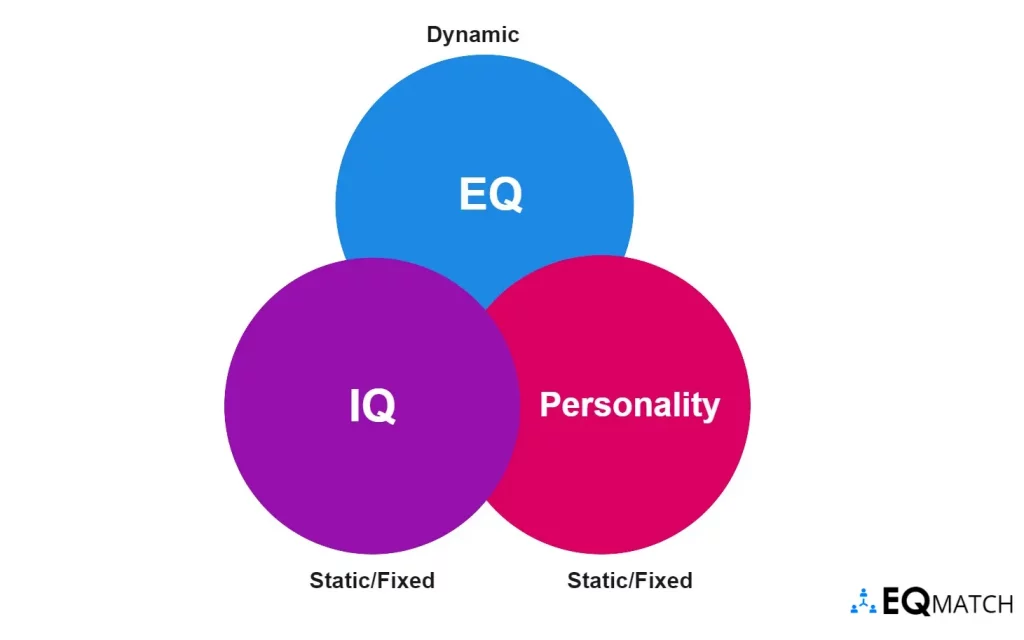Did you know that optimists live longer?
Quite an interesting piece of research!
As unique human beings (and not just employees), we all bring a distinct point of view to our workplace. This difference in our ideas is key to innovation and growth.
At the same time, it is important for leaders to evaluate the motivations, preferences, interests, emotional make-up, and communication styles of people in the organization.
How do you evaluate employee personality? The short answer is personality testing. Let’s dive into the world of personality testing for employees.
In recent times, more and more human resource leaders have been leveraging personality testing in the workplace.
Personality assessments for hiring and team building have been proven to help HR hire better, reduce employee turnover, and improve workforce productivity.
For these reasons, forward-facing organizations incorporate personality testing into their growth strategy.
Why use valid and reliable personality tests?
As a people leader, you want accurate and trustworthy results from assessments.
Using unreliable tests can lead to misinformed hiring decisions, which can negatively impact the productivity and morale of the workplace.
On the other hand, reliable personality tests surface areas such as the applicant’s motivations, work styles, and strengths and weaknesses.
These and more insights can help HR leaders to make informed hiring decisions.
Therefore, HR leaders should research and carefully evaluate the different personality testing options available to ensure that they choose a test that is both valid and reliable.

Personality Testing in the Workplace: Advantages
Culture Fit
Workplace personality tests can be especially useful when selecting employees from an organizational culture standpoint.
A personality assessment for hiring can help recruiters with powerful insights to assess whether or not an applicant will fit well with the company culture and work effectively within a team.
Near-term benefits of this include reducing the likelihood of employee turnover and improving workforce productivity.
Identifying Red Flags
Identifying potential red flags, such as tendencies towards negative behavior or poor work ethic, early in the hiring process, before making a job offer, can save time and money among other things.
Let’s discuss this with an example.
Let’s say, as a human resource professional, you shortlist 12 applicants from a pool of applications.
These 12 candidates demonstrate a solid skill set and work-experience.
You have little to no doubt about their hard skills and domain-related capabilities.
What the resumes did not (and cannot) tell you is how they work, how they interact with people, how they handle conflict, how they motivate people, and how they empower others to grow!
Bring personality testing for hiring, and you get a 360-degree view of an applicant’s profile!
Improved Hiring Decisions
Personality testing helps human resource professionals assess a candidate’s motivations, work styles, strengths, and weaknesses.
The insights help them make informed hiring decisions.
For example, they can identify candidates who are a good fit for the company culture, reducing the likelihood of employee turnover and improving workforce productivity.
Improved Team Dynamics
A personality test for employees provides HR leaders with valuable information about the strengths and weaknesses of their employees and teams, allowing them to manage their teams more effectively and support their success.
By using personality testing for employees, HR leaders can create teams that work well together, with high levels of productivity and collaboration.
When teams work well together, they are more likely to be efficient and effective, leading to improved overall performance and success.
By using personality testing, HR leaders can ensure that their teams are made up of individuals who complement each other and work effectively towards common goals.
From improved hiring decisions to increased employee retention and improved team dynamics, personality testing offers a wealth of benefits to HR leaders.
How to Choose the Right Personality Testing?
Choosing the right personality test for hiring employees or for existing employees can be challenging.
Before you decide upon the right personality testing solution, it makes sense to understand the different types of personality tests available, and to consider the factors that are most important to your organization.
Types of Personality Testing
What personality test is used by employers?
For the most part, we can categorize personality testing for employees into three core areas- self-assessment surveys, standardized tests, and behavioral assessments.
What are the 4 types of personality tests?
Myers-Briggs Type Indicator (MBTI), the Big Five Personality Traits test,16 Personalities, and the DISC assessment are the most common personality testing solutions.
Each of these tests aims to measure different aspects of an individual’s personality.
Best hr software for enterprise recruitment
For this reason, they are used differently in the workplace.
Some organizations, for example, use the MBTI to gauge an individual’s communication and work style preferences.
Similarly, one can use the Big Five Personality Traits test measures traits such as openness, conscientiousness, extraversion, agreeableness, and neuroticism.
Cost, ease of use, validity and reliability, customizability, and integration with other HR technologies and processes are some of the most important factors you can look into when researching personality testing for employees.
Personality Testing Best Practices
Earlier, in the post, we talked about the benefits of incorporating personality testing into the hiring process.
It is important to implement personality testing in a way that is effective, efficient, and ethical.
Here are the best practices to effectively incorporate personality testing into the hiring process:
Make personality testing a part of your overall candidate screening process
Personality testing, when used alongside other forms of assessment such as skills testing and interviews, can yield powerful results.
HR Training
It is important that your HR staff and managers understand how to interpret and use the results of a personality test for hiring employees.
Therefore, HR leaders should organize training sessions to help their team understand how to assess the results of personality tests.
Using personality testing in a fair and ethical manner
Ensure that your organization uses personality testing for employees in a fair and ethical manner, in accordance with all relevant laws and regulations.
This includes ensuring that the results of personality testing are used in a way that is non-discriminatory and respects the privacy of candidates.

Shortcomings of Personality Testing Assessments
As you might already know, personality and Intelligence Quotient (IQ) are static. In other words, these do not change.
In contrast, Emotional Intelligence is dynamic. EI can be improved through active assessments and training.
Myers Briggs Personality Test vs EQMatch
Should you use personality assessments?
Type-based personality assessments do not cover the entire psychological spectrum. Hence, you could get more value from emotional intelligence assessments.
Personality testing in the workplace: Final thoughts
Personality testing is an important tool for HR leaders looking to hire better, reduce employee turnover, and improve workforce productivity.
Through insights into a candidate’s motivations, work style, and potential fit with your organization, personality testing for employees can support informed hiring decisions and contribute to a more productive and engaged workforce.
By incorporating personality testing into the hiring process, HR leaders can make informed hiring decisions, increase employee retention, and improve team dynamics.


No responses yet